Her name was Gwen and she was 8 years old, a year younger than me. She knew exactly what she was doing when she snatched that wallet from the ground, ripped out the few dollars, and dropped the incriminating wallet into the nearest garbage can. Within moments, I saw another little girl crying, flanked by an adult who was helping her look for her dropped wallet.
Looking back after all these decades, I remember that scene as clearly as if it happened yesterday. I was paralyzed with sadness for the little girl crying without the money she needed for opening day at the ball field. I watched in disbelief that Gwen could ruthlessly take her money. I was dumbfounded–literally found dumb–I did not say a word. To anyone. Until now. It wasn’t that I was unable to speak; I was unwilling to speak. I also remember that I was sad for Gwen, and I was angry that she could so effortlessly carry out that bad idea. Had I found the wallet, I believe I would have happily turned it over to the crying girl, “Look, I found this! Is this what you’re looking for?”
Well, by God’s constant grace, I grew up to be mostly the I-found-this-how-can-I-help-you person, rather than the take-the-money-and-run person at the ballpark. However, I also grew up to be mostly not angry enough to speak up about injustices. The silent person who watched Gwen take that girl’s money without so much as uttering a peep was not sad and angry enough. Whatever I feared about speaking up was stronger than my sadness and anger over the injustice.
Today that story came to my memory. It reminded me of my complicity in white supremacy.
When I was born, Jim Crow was in full swing. Even in suburban L.A., we still did plenty of racist things–the words we used, the costumes we wore, the jokes we told, the fears we nursed, the near complete segregation of ball fields, schools, shops, neighborhoods, churches and everything else I frequented.
As laws were passed to give civil rights to people of color, my family slowly began to change. I tried to become one of the ‘good’ white people. I didn’t do blatantly racist things any more. I didn’t use racist words. I made friends with people who were bused into my school in 1974. (Finally…two decades after Brown v. Board of Education!) I tried to be the good and nice person who wouldn’t take a little girl’s wallet. The person who wouldn’t be racist. The person who would never be a white supremacist.
However, even as I tried to not to be racist, I knew deep down that me being a good person would never solve society’s problem.
I rejoiced with the country when Obama was elected. I was a 30-year independent voter who temporarily became a Democrat so I could caucus for Obama in Iowa. I didn’t pay too much attention to the hatred and vitriol with which some people viewed his election and presidency. I thought they were a racist minority that was gradually getting snuffed out and sent into the crevices of society.
 Then the unthinkable happened and I finally noticed. The racist vitriol, among other factors and entities, elected trump to the presidency. OK. Then I began to get it. An individual’s “goodness” or “niceness” is really not enough. This was more urgent than I had ever realized.
Then the unthinkable happened and I finally noticed. The racist vitriol, among other factors and entities, elected trump to the presidency. OK. Then I began to get it. An individual’s “goodness” or “niceness” is really not enough. This was more urgent than I had ever realized.
Thanks to the writings of Layla Saad, I now have names for what I was doing as a ‘good’ white person.
White silence.
White exceptionalism.
White apathy.
“Here are a few examples of White Apathy in action:
• White Apathy shows up as laziness, tiredness, fear, boredom, numbness, perfectionism, turning away from the news, and other apathetic feelings and actions when it comes to engaging in anti-racism practice.
• White Apathy shows up when people have done very little anti-racism work, so they don’t understand just how urgent this work is.
• It shows up as White Silence, White Exceptionalism and inaction because of your attachment to the idea that you are a ‘good white person’.”
Me and White Supremacy Workbook, page 87, by Layla Saad
White privilege.
“I think whites are carefully taught not to recognize white privilege, as males are taught not to recognize male privilege. So I have begun in an untutored way to ask what it is like to have white privilege. I have come to see white privilege as an invisible package of unearned assets that I can count on cashing in each day, but about which I was ‘meant’ to remain oblivious. White privilege is like an invisible weightless knapsack of special provisions, assurances, tools, maps, guides, codebooks, passports, visas, clothes, compass, emergency gear, and blank checks.”
From “White Privilege and Male Privilege: A Personal Account of Coming To See Correspondences through Work in Women’s Studies” (1988), by Peggy McIntosh (You can read an excerpt by McIntosh, which includes 50 bits of daily privilege that people like me have for no reason except our skin color.)
White people, we are all complicit in keeping racism and white supremacy as strong as ever in our country.
Our institutional, systemic, toxic, and endemic racism needs dismantling.
It’s going to take education. This is black history month. Let’s get educated. We all need to stop justifying and start listening.
I don’t want to be silent anymore.
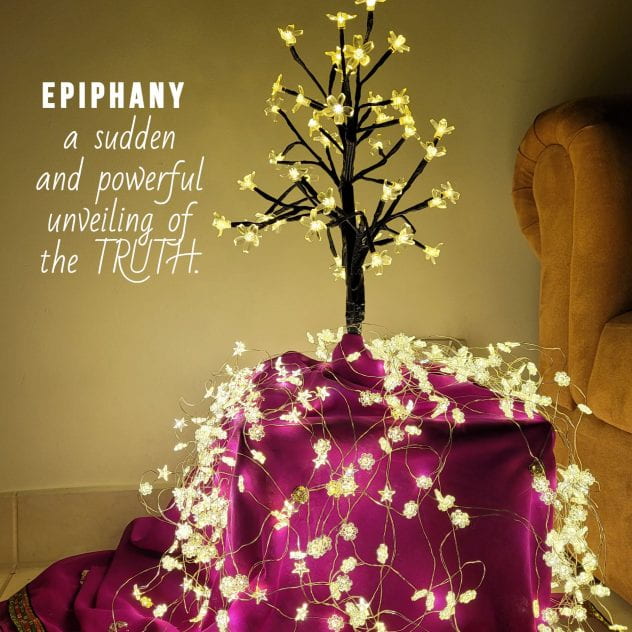
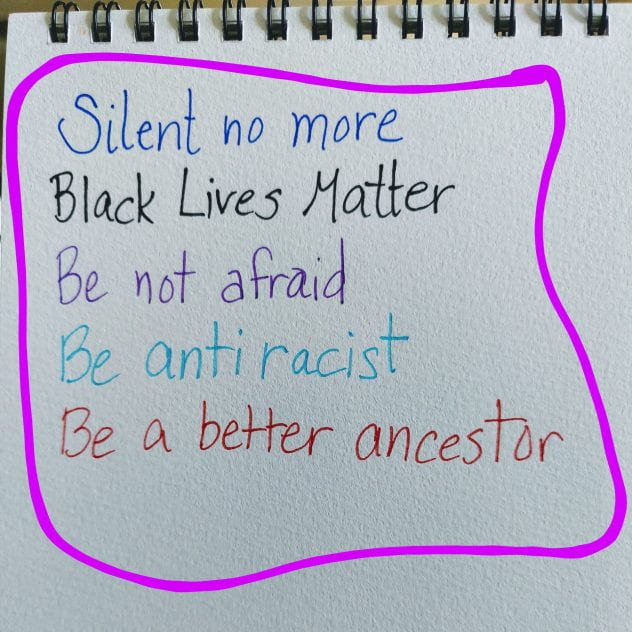
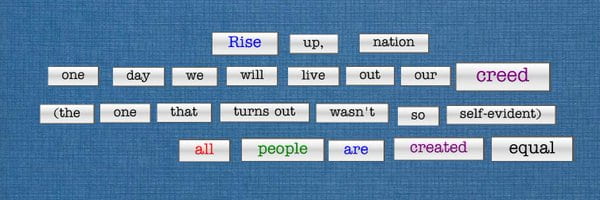
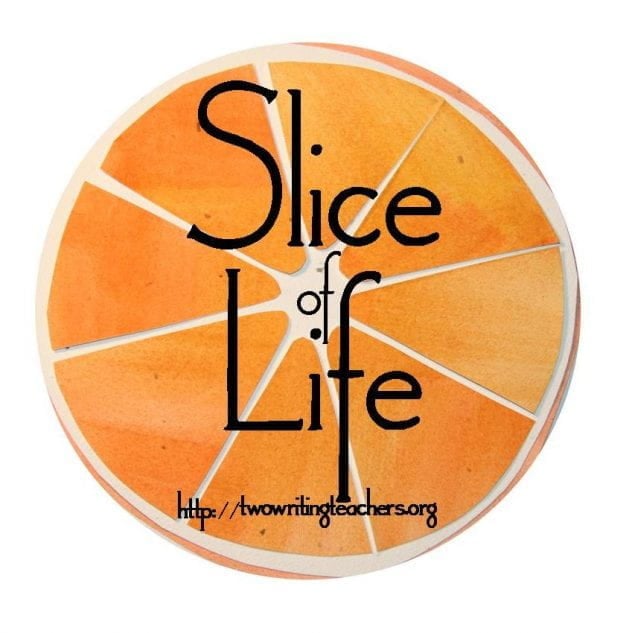
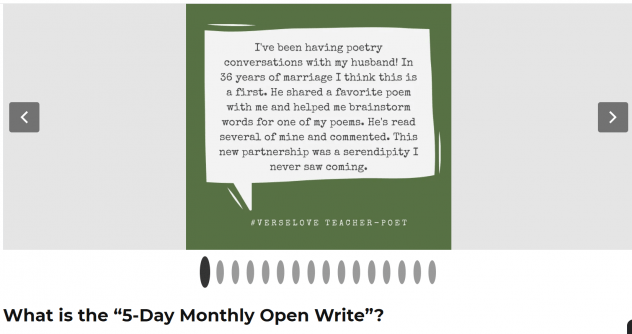
 Then the unthinkable happened and I finally noticed. The racist vitriol, among other factors and entities, elected trump to the presidency. OK. Then I began to get it. An individual’s “goodness” or “niceness” is really not enough. This was more urgent than I had ever realized.
Then the unthinkable happened and I finally noticed. The racist vitriol, among other factors and entities, elected trump to the presidency. OK. Then I began to get it. An individual’s “goodness” or “niceness” is really not enough. This was more urgent than I had ever realized.